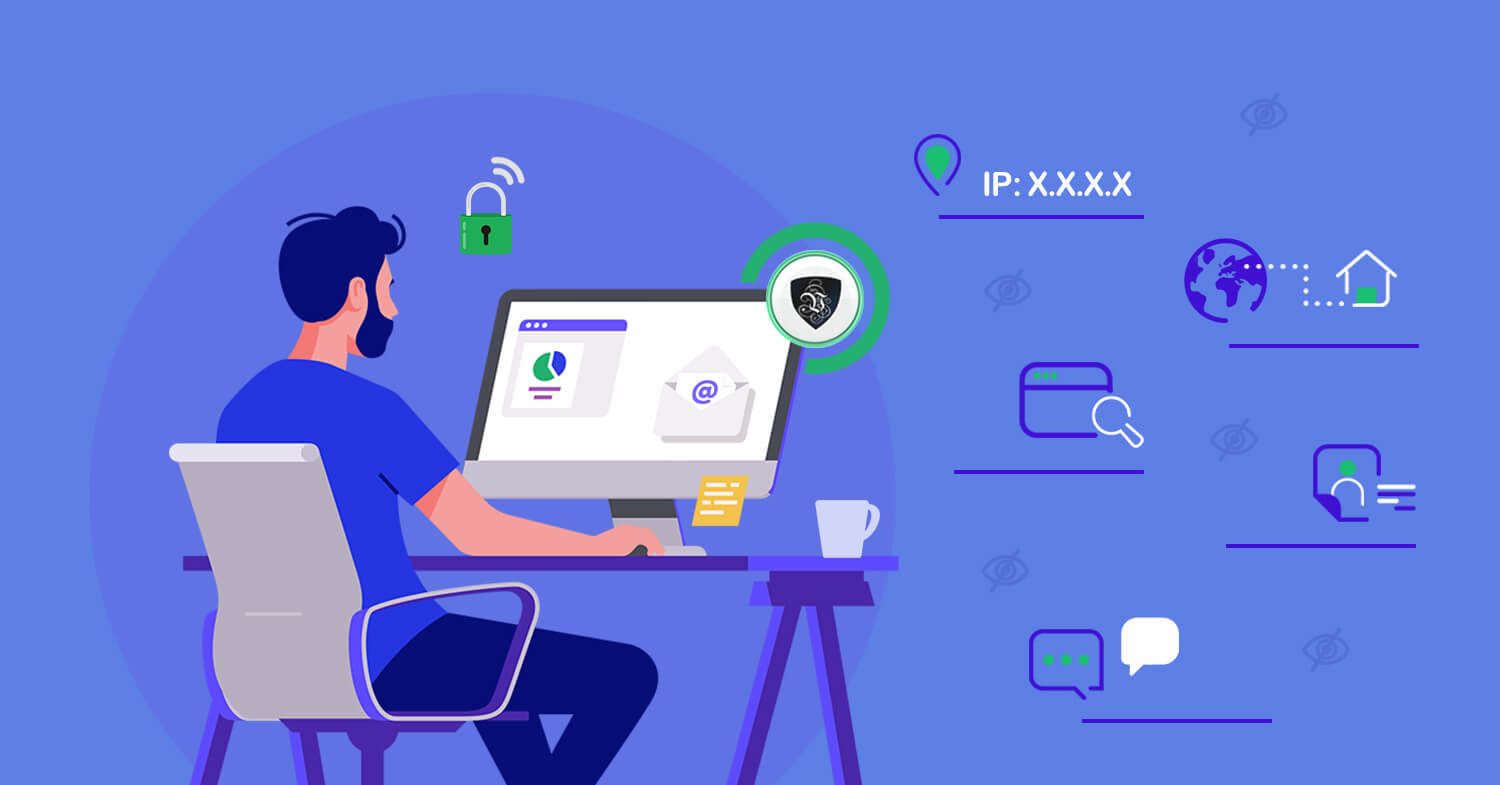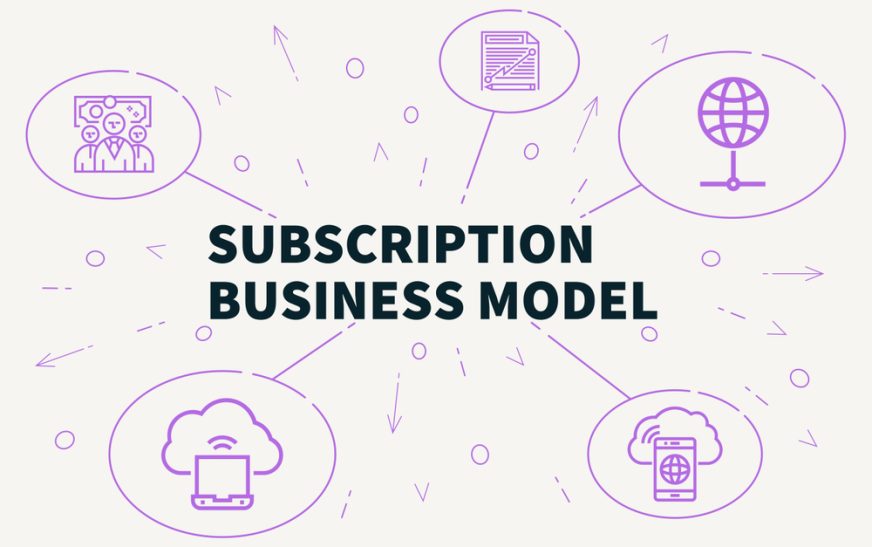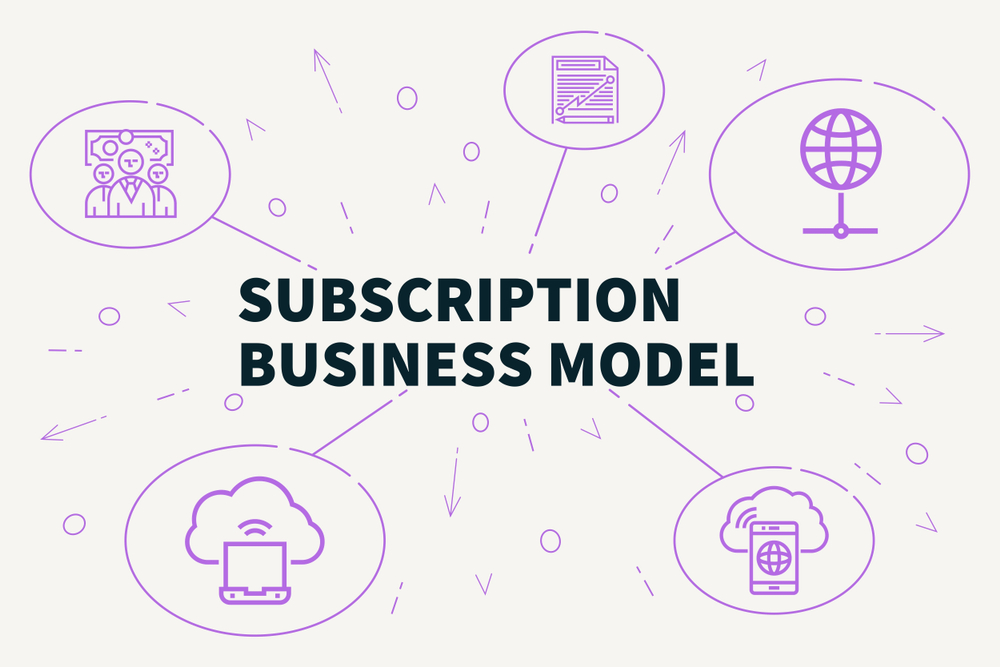In the current digital environment, ensuring online privacy and accessing restricted content has become increasingly vital. A mobile proxy functions as an effective tool for achieving these objectives, providing distinct advantages over traditional proxies. This article examines the concept of mobile proxies, their operational mechanisms, and their key differences from other types of proxies. Furthermore, it discusses the benefits associated with the use of mobile proxies, provides guidance on the setup process, evaluates their legality, and addresses potential risks. Whether one is a casual user or a business aiming for enhanced security, comprehending the functionality of mobile proxies can significantly improve the overall online experience.
What is a Mobile Proxy?
A mobile proxy is a specialized type of proxy server that channels internet traffic through mobile devices, thereby providing users with mobile IP addresses. This technology holds significant value for web scraping, ethical web scraping practices, and data harvesting, as it facilitates internet anonymity and aids in circumventing online tracking mechanisms while gathering data from various websites.
Mobile proxies function as intermediaries, enabling users to uphold high levels of privacy and security. Consequently, they are particularly well-suited for activities such as:
- Competitor analysis
- Ad verification
- The execution of digital marketing strategies
How Does a Mobile Proxy Work?
Mobile proxies function by routing internet traffic through a mobile network, employing a rotating proxy system that assigns different IP addresses for each request. This operation complicates the tracking of user behavior, thereby enhancing data integrity and facilitating efficient traffic routing. Additionally, it supports seamless session management and compliance with privacy legislation.
As a result, users can circumvent restrictions and access geo-targeted content with ease, effectively bypassing content restrictions and employing location spoofing for search engine optimization and targeted marketing.
The technical mechanics of mobile proxies involve an intricate process of IP rotation, wherein each new connection is allocated a distinct mobile IP address, frequently associated with actual mobile devices. This continuous rotation not only conceals the original user’s location but also improves connection management by distributing requests uniformly across multiple IP addresses.
Such an approach is essential for web crawling and scraping, allowing users to extract data from various platforms without facing rate limiting or blocking.
Utilizing these proxies give the power tos individuals and businesses to expand their data extraction endeavors, unlocking valuable insights while ensuring anonymity and security in their online activities.
What Makes a Mobile Proxy Different from Other Proxies?
Mobile proxies are distinct from other types of proxies, such as data center proxies and residential proxies, primarily due to their ability to provide a genuine mobile IP address, thereby enhancing user experience and anonymity. While data center proxies may offer faster connection speeds, they lack the authenticity associated with mobile proxies, which are essential for location spoofing and accessing location-based services.
In contrast, residential proxies utilize real home IP addresses, resulting in a high level of trustworthiness; however, they may be slower and less reliable than mobile alternatives. Each type of proxy serves specific purposes; for example, mobile proxies are particularly effective for tasks like social media management, where a legitimate mobile presence is crucial.
On the other hand, data center proxies are well-suited for tasks that require rapid data scraping and bulk processing, owing to their consistent speed. Understanding these distinctions enables online marketers and security professionals to select the appropriate tool for regulatory compliance and enhanced security protocols.
Benefits of Using a Mobile Proxy
Utilizing a mobile proxy provides numerous advantages that significantly enhance both security and functionality for users involved in data collection activities.
Among these benefits are increased anonymity, improved protection against cyber threats, and enhanced access to geo-targeted content, all of which are vital for effective digital marketing strategies and competitive intelligence efforts.
Furthermore, mobile proxies contribute to performance optimization by minimizing latency and ensuring stable connections.
1. Increased Anonymity
One of the primary advantages of utilizing a mobile proxy is the enhanced anonymity it offers, effectively concealing the user’s digital footprint and safeguarding against online tracking. This level of privacy protection is crucial for both individuals and businesses engaged in sensitive activities, such as web scraping or competitor analysis, as it allows them to operate without revealing their identity.
In an era where digital footprints can be readily monitored and analyzed, the importance of maintaining privacy cannot be overstated. Mobile proxies serve as an essential tool for those seeking to navigate the internet without attracting undue attention.
By routing each connection through a mobile-based network, users can obscure their IP addresses, thereby preventing websites from tracking their activities. This capability is vital not only for individual privacy but also for organizations that require secure data-gathering methods.
Ultimately, the use of mobile proxies fosters a safer online experience, enabling users to engage freely while protecting their sensitive information from unwanted scrutiny.
2. Better Security
Mobile proxies enhance data security by providing an additional layer of protection against potential cyber threats, including malware and hacking attempts. With features such as SSL encryption, users can conduct activities such as online banking or sensitive data collection with increased confidence in their security measures.
This technology not only masks the user’s IP address but also establishes a safer environment for data transmission, significantly complicating efforts by malicious actors to intercept information. By routing traffic through an intermediary server, the inherent anonymity protects personal details while users engage in various online activities.
Mobile proxies often incorporate advanced security measures, including IP rotation and geo-location options, which further strengthen defenses against tracking and unauthorized access. This multi-faceted approach ensures that both individuals and businesses can navigate the digital landscape with enhanced trust in their data protection strategies.
3. Access to Geo-Restricted Content
A notable advantage of mobile proxies lies in their capacity to facilitate access to geo-restricted content through sophisticated geo-targeting and location spoofing techniques. This capability enables users to circumvent restrictions set by websites, thereby allowing for seamless engagement with location-based services and content delivery across various regions.
By employing a network of genuine mobile IP addresses, these proxies can accurately mimic the geographical location of users, effectively presenting them as if they are browsing from different locations. This functionality is particularly beneficial for digital marketers seeking to optimize advertising placements and retargeting strategies tailored to specific demographics.
Furthermore, businesses can perform competitive research and monitor their brand presence in diverse markets without being constrained by geographical limitations. This ensures that they can adapt their content and marketing efforts to effectively resonate with local audiences.
4. Faster Connection Speeds
Mobile proxies can significantly improve connection speeds, providing users with optimized performance for activities such as web scraping, streaming services, online research, and automated tasks. By reducing network latency and enhancing traffic routing, mobile proxies ensure a seamless user experience, facilitating efficient data collection and analysis, and supporting advanced proxy software.
This enhanced performance is particularly advantageous for businesses that depend on real-time data, where every millisecond is critical. When utilizing mobile proxies, users can access a network that intelligently routes their requests through multiple mobile devices, resulting in increased throughput and minimized risks of bottlenecks.
These improvements enable quicker access to valuable content, thereby assisting organizations in maintaining a competitive edge in today’s fast-paced digital environment. Additionally, mobile proxies can help circumvent geographical restrictions and protect user privacy, further enhancing the overall experience while ensuring optimal performance levels are upheld.
How to Use a Mobile Proxy?
Effectively utilizing a mobile proxy involves several critical steps, including selecting an appropriate service, configuring the network settings of your device, and potentially employing a proxy switcher extension for seamless integration.
These steps are essential to ensure optimal performance in activities such as web scraping, data collection, or accessing restricted content.
1. Purchase a Mobile Proxy Service
The initial step in utilizing a mobile proxy is to acquire a reliable proxy service from a reputable provider. It is essential to ensure that the service offers features that align with your specific needs, including pricing, bandwidth, and geographic coverage. Additionally, consider aspects like HTTP, HTTPS, and SOCKS protocol support, mobile network security, and SSL encryption for enhanced online security.
Evaluating mobile proxy services requires a thorough comparison of various offerings based on their unique features, which may encompass the number of available IP addresses, session control options, and performance consistency.
Pricing models can differ significantly among providers; therefore, it is crucial to determine whether a service offers a pay-as-you-go model or a subscription plan that best fits your budget, considering factors like bandwidth and latency.
Additionally, investigating the quality of customer support is vital, as responsive and knowledgeable support staff can significantly enhance your overall experience, particularly in the event of technical challenges involving issues like network performance and online security.
By carefully considering these factors, including privacy legislation and compliance, you can make a well-informed decision that effectively aligns with your requirements.
2. Configure Your Device’s Network Settings
Upon acquiring a mobile proxy service, the subsequent step is to configure the network settings of your device to incorporate the proxy address, employing protocols like HTTP, HTTPS, or SOCKS. This integration enables your mobile device to route traffic through the designated proxy server, facilitating enhanced online security and internet anonymity.
This process generally entails navigating to the settings menu of your mobile device to access network connection options. The specific steps may vary slightly depending on whether you are utilizing an Android or iOS device, both of which can benefit from effective traffic encryption.
- For Android users, accessing the ‘Wi-Fi’ settings and performing a long press on the connected network will present a menu to modify the network options. In this menu, it is necessary to select ‘Advanced options’ and enter the provided proxy hostname and port.
- iOS users should proceed to ‘Settings’, select ‘Wi-Fi’, choose the connected network, and scroll down to locate the ‘HTTP Proxy’ settings. By accurately configuring these details, your mobile device will be capable of sending and receiving data through the proxy, thereby enhancing privacy and facilitating access to geo-restricted content.
3. Use a Proxy Switcher Extension
To enhance convenience and usability, employing a proxy switcher extension can facilitate the management of mobile proxy settings, enabling users to quickly switch between different proxies and optimize performance during web scraping or browsing activities, thereby improving browsing speed.
This functionality is particularly advantageous for individuals engaged in tasks that necessitate varied IP addresses, such as market researchers or SEO professionals, who often need to circumvent geo-restrictions and access localized content through location spoofing.
With widely recognized options like FoxyProxy and Proxy SwitchyOmega, users can efficiently configure and toggle between multiple proxies without complicating their browsing experience.
These extensions not only streamline the switching process but also improve online security by providing users with a layer of anonymity, which is essential for those who frequently handle sensitive data, engaging in activities like target marketing and competitive intelligence.
By automating proxy management, leveraging tools for load balancing and network segmentation, users can concentrate on their tasks rather than continually adjusting settings.
Are Mobile Proxies Legal?
The legality of utilizing mobile proxies is often contingent upon the jurisdiction and the specific use case, thereby prompting significant inquiries regarding ethical data usage and adherence to data privacy laws and regulations, such as privacy legislation and compliance measures.
Although employing mobile proxies for legitimate purposes is generally regarded as legal, certain activities, such as unauthorized data collection or circumventing bans, may exist in a gray area, necessitating that users conduct comprehensive research to ensure compliance.
1. Legality of Using Mobile Proxies
The legal use of mobile proxies is often contingent upon adherence to data privacy regulations and ethical guidelines pertaining to user behavior analytics and data collection practices.
A thorough understanding of these regulations is crucial for various industries, including marketing, research, and cybersecurity. Organizations must navigate the intricate landscape of laws such as the General Data Protection Regulation (GDPR) and the California Consumer Privacy Act (CCPA), which establish the parameters for the treatment of user information.
Particularly in sectors such as e-commerce and digital advertising, it is imperative for organizations to exercise caution regarding the implications of their data practices to prevent potential legal repercussions.
By adopting transparent policies and ensuring informed consent, organizations can significantly mitigate risks, promote responsible data usage, and foster trust with clients and consumers alike.
2. Legality of Selling Mobile Proxy Services
The legality of selling mobile proxy services is subject to the same regulatory scrutiny as their use, necessitating that service providers ensure compliance with relevant laws to avoid potential legal complications.
This includes adherence to data protection regulations, consumer privacy laws, and any applicable licensing requirements. Service providers are advised to implement robust compliance measures, such as conducting regular audits and establishing clear user agreements, to safeguard both their operations and the interests of their clients.
Emphasizing best practices in transparency and user consent will not only enhance trust but also mitigate risks associated with misuse or unauthorized access. By remaining informed about evolving regulations and maintaining diligent operational standards, mobile proxy providers can protect themselves legally while contributing to a responsible and ethical marketplace.
Potential Risks of Using a Mobile Proxy
While mobile proxies provide a range of benefits, they also present potential risks that users must carefully consider, particularly concerning data privacy, exposure to malware, and the possibility of IP blocking.
Recognizing these risks is essential for individuals involved in activities that employ mobile proxies for web scraping or data collection.
1. Data Privacy Concerns
Data privacy concerns are significant when using mobile proxies, particularly when users may unintentionally expose sensitive information or connect to unreliable proxy servers that could compromise their privacy.
These vulnerabilities underscore the necessity of understanding the inherent risks associated with mobile proxies, as malicious actors may exploit insufficient security measures. Users should remain vigilant, as even seemingly innocuous interactions can result in data leaks or breaches.
As such, employing best practices—such as utilizing reputable proxy services that offer robust encryption, regularly updating authentication credentials, and being mindful of the information accessed during proxy use—can greatly enhance data protection.
Prioritizing data privacy not only safeguards personal information but also fosters trust in digital interactions, ultimately contributing to a safer online environment.
2. Malware and Security Risks
When utilizing mobile proxies, there exists a risk of encountering malware and other security threats, particularly if users connect to unreliable or malicious proxy servers that can compromise their online security.
The presence of various types of malware, including spyware, adware, and ransomware, poses significant dangers to individuals seeking anonymity and security. Users may inadvertently expose themselves to phishing schemes or data theft, as attackers exploit the vulnerabilities associated with inadequate proxy providers.
To mitigate these risks, it is advisable to use trusted and reputable proxy services that incorporate robust encryption and comprehensive security measures. Additionally, routinely updating mobile devices with the latest security patches and employing antivirus solutions can serve as effective strategies for safeguarding against potential threats while benefiting from the advantages of mobile proxies.
3. Blacklisting and IP Blocking
One significant risk associated with the use of mobile proxies is the potential for blacklisting and IP blocking, particularly when engaging in data scraping or accessing restricted content. The repeated use of the same IP address can trigger security measures from target websites, resulting in temporary or permanent bans and impacting session persistence.
This concern is particularly critical for users who depend on these proxies for successful web scraping or competitive analysis. The consequences of such actions can disrupt operations and result in the loss of valuable data, influencing factors like data integrity and web analytics.
To mitigate these risks, it is advisable to implement strategies such as:
- Frequently rotating IP addresses through proxy rotation solutions,
- Utilizing high-quality proxy providers skilled in data center proxy services,
- Incorporating respectful scraping techniques aligned with scraping ethical guidelines.
These measures can significantly enhance the user experience. Being mindful of site policies and adhering to ethical scraping practices can not only help preserve access but also foster a more sustainable relationship with web resources, thereby enabling users to continue leveraging mobile proxies effectively for applications such as web automation and digital marketing.
Frequently Asked Questions
What is a mobile proxy?
A mobile proxy is a type of proxy server that allows users to access the internet using a mobile device, such as a smartphone or tablet.
How does a mobile proxy work?
A mobile proxy server acts as an intermediary between a user’s mobile device and the websites they are trying to access. It routes the user’s internet traffic through its own server, masking the user’s device IP address and location while enhancing internet anonymity and preventing unwanted user tracking.
Why would I need a mobile proxy?
A mobile proxy can be useful for a variety of reasons, such as accessing geo-restricted content, bypassing network restrictions, and maintaining online anonymity, which are crucial for activities like targeted marketing, online research, and circumventing internet censorship.
Are there different types of mobile proxies?
Yes, there are two main types of mobile proxies: dedicated and shared. A dedicated mobile proxy provides a unique IP address for a single user, enhancing session management and user authentication, while a shared mobile proxy allows multiple users to share the same IP address, which can affect bandwidth and browsing speed.
How do I set up a mobile proxy on my device?
The setup process may vary depending on the device and type of mobile proxy being used. Generally, it involves configuring the proxy server and the IP address settings in the device’s network configuration or using a third-party app. Mobile devices often require specific settings to ensure internet anonymity and data privacy.
Is using a mobile proxy legal?
Yes, using a mobile proxy is legal in most countries. However, it is important to use a mobile proxy responsibly, considering factors such as online security, data privacy, and user data protection. Engaging in illegal activities such as unauthorized web scraping or violating privacy legislation is strongly discouraged.
Yes, using a mobile proxy is legal in most countries. However, it is important to use a mobile proxy responsibly, ensuring compliance with data privacy laws and not engaging in any illegal activities such as unauthorized web scraping or circumventing content restriction measures while using it.











